
Jakarta: The Vibrant Heartbeat of Indonesia
Jakarta, the bustling capital of Indonesia, is a city where modernity meets tradition. As you wander through its streets, you'll find soaring skyscrapers juxtaposed with historic Dutch colonial buildings. The city is a melting pot of cultures, offering a rich tapestry of experiences for every type of traveler. Start your journey in Kota Tua, the old town of Jakarta. Here, you can explore the Jakarta History Museum and the charming streets lined with cafes and street vendors. Don't miss the Fatahillah Square, where you can immerse yourself in the city's colonial past. For a taste of the local culture, visit the vibrant neighborhoods of Glodok (Jakarta's Chinatown) and Little India. These areas are perfect for trying authentic Indonesian cuisine and shopping for unique souvenirs. Be sure to try the street food — from satay to nasi goreng, the flavors are simply unforgettable. Jakarta is also a shopper's paradise with its numerous malls and markets. From high-end boutiques in Plaza Indonesia to bargain hunting in Tanah Abang Market, there is something for every budget. If you're interested in arts, the National Museum and the Jakarta Art Building offer a glimpse into Indonesia's rich artistic heritage. Despite its hectic pace, Jakarta also offers serene escapes. Visit the Thousand Islands, a chain of islands just off the coast, for a quick getaway. Or, take a peaceful stroll in Taman Mini Indonesia Indah, a sprawling park showcasing the diverse cultures of Indonesia.
Local tips in Jakarta
- Traffic can be heavy, especially during rush hours. Plan your travel accordingly and consider using ride-sharing apps.
- Learn a few basic Indonesian phrases. It can be very helpful and locals appreciate the effort.
- Wear comfortable clothing and stay hydrated. Jakarta's tropical climate can be very humid.
- Cash is still widely used, so it's a good idea to carry some local currency (Indonesian Rupiah).
- Visit popular attractions early in the morning to avoid crowds and the midday heat.
Neighbourhoods in Jakarta
Jakarta: The Vibrant Heartbeat of Indonesia
Jakarta, the bustling capital of Indonesia, is a city where modernity meets tradition. As you wander through its streets, you'll find soaring skyscrapers juxtaposed with historic Dutch colonial buildings. The city is a melting pot of cultures, offering a rich tapestry of experiences for every type of traveler. Start your journey in Kota Tua, the old town of Jakarta. Here, you can explore the Jakarta History Museum and the charming streets lined with cafes and street vendors. Don't miss the Fatahillah Square, where you can immerse yourself in the city's colonial past. For a taste of the local culture, visit the vibrant neighborhoods of Glodok (Jakarta's Chinatown) and Little India. These areas are perfect for trying authentic Indonesian cuisine and shopping for unique souvenirs. Be sure to try the street food — from satay to nasi goreng, the flavors are simply unforgettable. Jakarta is also a shopper's paradise with its numerous malls and markets. From high-end boutiques in Plaza Indonesia to bargain hunting in Tanah Abang Market, there is something for every budget. If you're interested in arts, the National Museum and the Jakarta Art Building offer a glimpse into Indonesia's rich artistic heritage. Despite its hectic pace, Jakarta also offers serene escapes. Visit the Thousand Islands, a chain of islands just off the coast, for a quick getaway. Or, take a peaceful stroll in Taman Mini Indonesia Indah, a sprawling park showcasing the diverse cultures of Indonesia.
When is the best time to go to Jakarta?
Iconic landmarks you can’t miss
Taman Mini Indonesia Indah
Explore Taman Mini Indonesia Indah, a cultural treasure in Jakarta showcasing Indonesia's rich heritage through architecture, museums, and stunning landscapes.
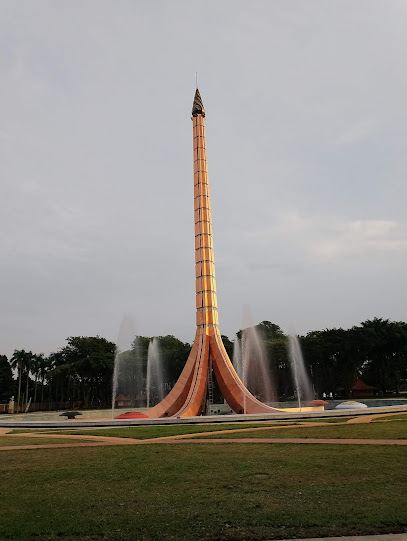
National Monument
Explore the National Monument in Jakarta, a remarkable symbol of Indonesia's independence, offering stunning views and rich historical insights.
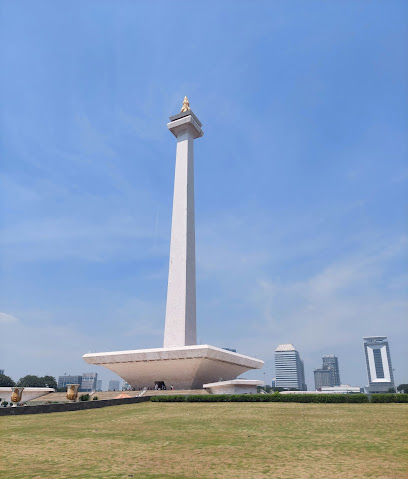
Taman Impian Jaya Ancol
Discover the thrills and tranquility of Taman Impian Jaya Ancol, Jakarta's ultimate recreational haven with amusement parks, water sports, and scenic beaches.
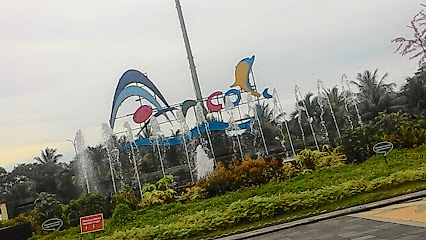
Taman Fatahillah
Discover the charm of Taman Fatahillah, Jakarta's historical park, where heritage, culture, and vibrant street life converge in a captivating experience.
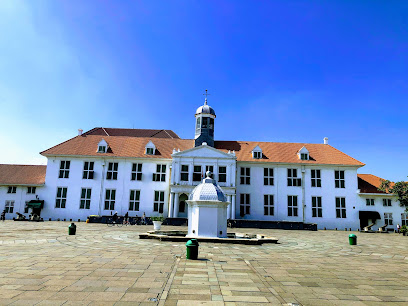
Lapangan Banteng Park
Explore the lush landscapes and cultural landmarks of Lapangan Banteng Park, a serene escape in the heart of Jakarta, blending nature and history.
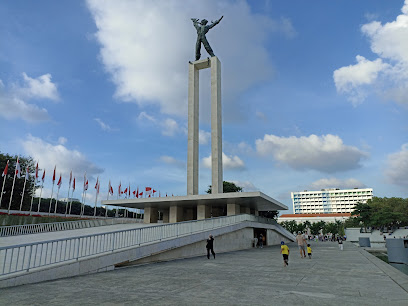
Jakarta History Museum
Discover the vibrant history of Jakarta at the Jakarta History Museum, where the past comes alive through engaging exhibits and stunning architecture.
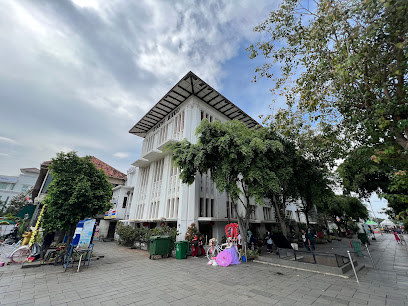
Wisata Kota Tua Jakarta
Discover the vibrant history and cultural richness of Wisata Kota Tua Jakarta, a must-visit destination for history enthusiasts and cultural explorers.
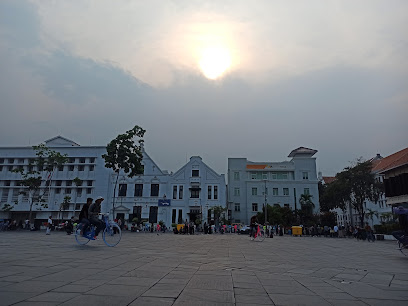
National Museum of Indonesia
Explore Indonesia's rich heritage at the National Museum, home to ancient artifacts and cultural treasures that narrate the archipelago's vibrant history.
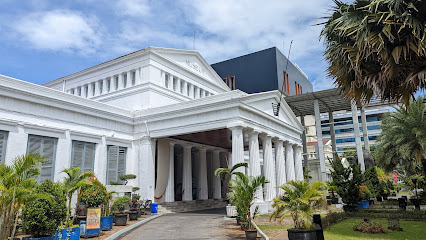
Istiqlal Mosque
Explore the grandeur of Istiqlal Mosque, Southeast Asia's largest mosque, a symbol of Indonesia's rich cultural tapestry and architectural beauty.
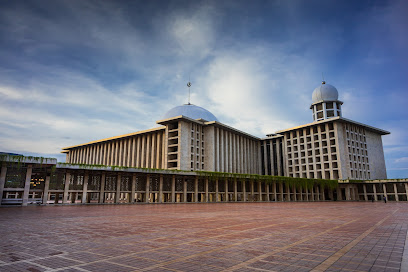
Selamat Datang Monument
Explore the Selamat Datang Monument, Jakarta's iconic symbol of hospitality, surrounded by vibrant culture and rich history.

Tugu Proklamasi
Explore Tugu Proklamasi, a historic landmark in Jakarta symbolizing Indonesia's independence and cultural heritage.
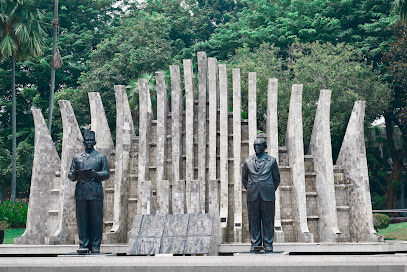
Monumen Patung Dirgantara
Discover Monumen Patung Dirgantara, an iconic monument in Jakarta that celebrates Indonesia's pioneering spirit in aviation and offers a serene escape in the bustling city.
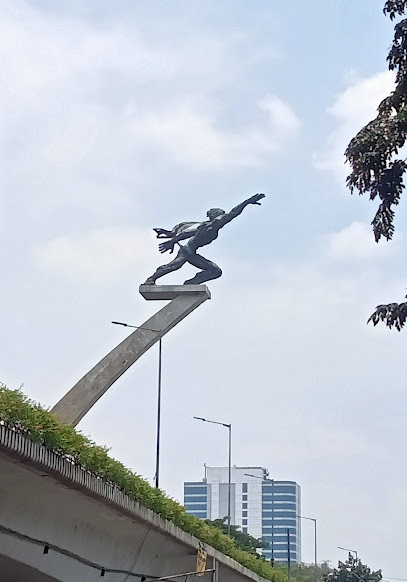
Monumen Pancasila Sakti
Explore the Monumen Pancasila Sakti, a profound historical monument in Jakarta, symbolizing Indonesia's foundational values and rich heritage.
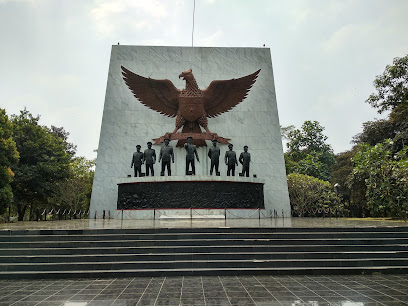
Toko Merah
Explore Toko Merah, one of Jakarta's most iconic historical landmarks, showcasing the city's rich colonial heritage and architectural beauty.
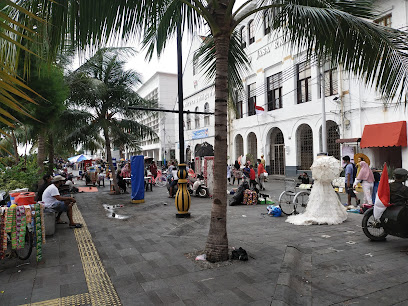
Gedung Kesenian Jakarta
Discover Jakarta's artistic heritage at Gedung Kesenian, where cultural events and architectural beauty come together in the heart of the city.
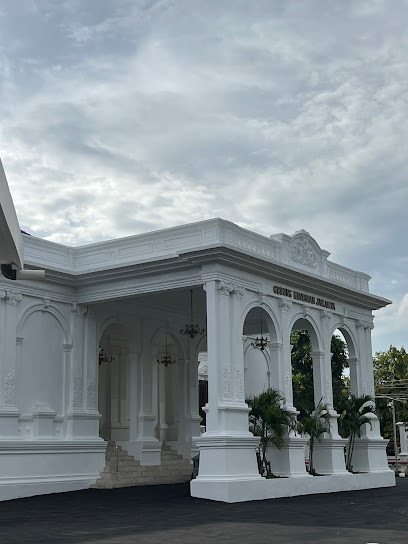
Unmissable attractions to see
Monas
Visit Monas, the National Monument, a symbol of Indonesia's independence in Jakarta, offering stunning views and rich historical insights.
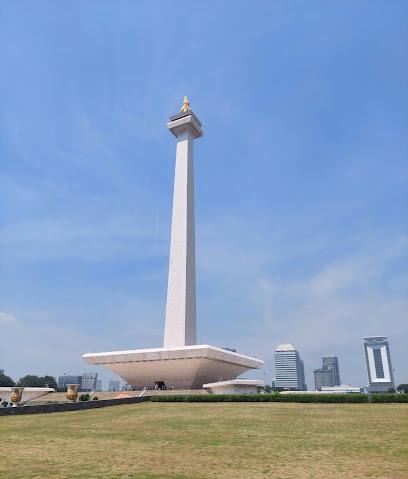
Ragunan Zoo
Discover the vibrant wildlife and lush landscapes of Ragunan Zoo in South Jakarta, where adventure and education meet in a sanctuary of biodiversity.
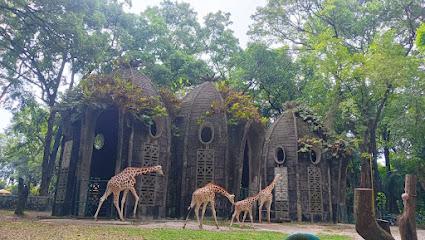
Bogor Botanical Gardens
Explore the stunning Bogor Botanical Gardens, a lush retreat in West Java showcasing diverse flora, rich history, and serene landscapes perfect for all nature lovers.
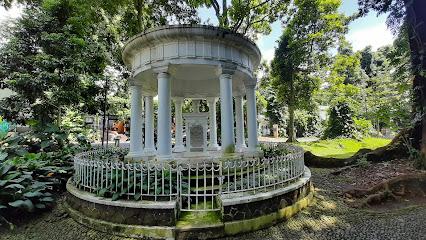
Gelora Bung Karno Main Stadium
Discover Gelora Bung Karno Main Stadium, a cultural icon in Jakarta hosting thrilling sports events and vibrant concerts amidst a rich historical backdrop.
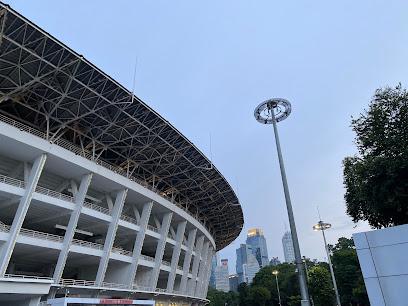
Taman Fatahillah
Explore the vibrant heart of Jakarta at Taman Fatahillah, a historical landmark rich in culture, architecture, and vibrant local life.
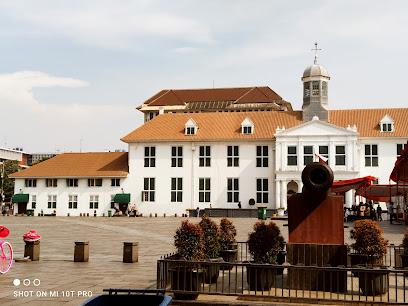
Jakarta History Museum
Uncover the historical treasures of Jakarta at the Jakarta History Museum, where Indonesia's vibrant past meets engaging exhibits.
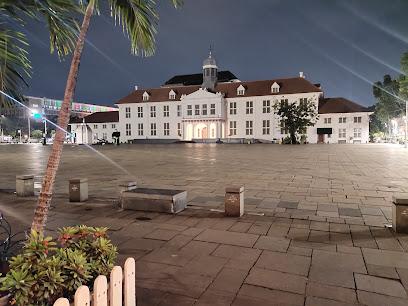
Suropati Park
Explore Suropati Park, a serene urban retreat in Central Jakarta, featuring lush gardens, art installations, and a vibrant local atmosphere.
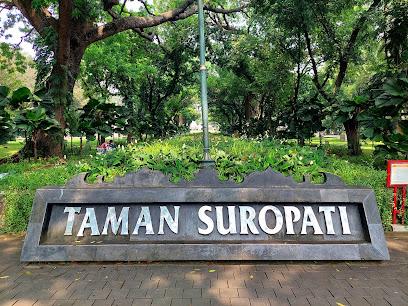
National Museum of Indonesia
Explore Indonesia's diverse heritage at the National Museum, where history comes alive through captivating exhibits and cultural treasures.
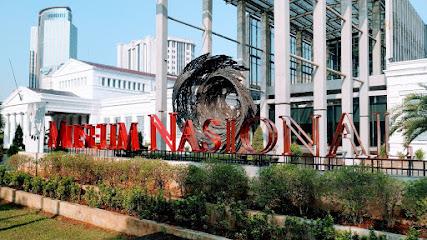
Istiqlal Mosque
Discover the architectural marvel of Istiqlal Mosque in Jakarta, a symbol of independence and unity, welcoming all visitors to explore its serene beauty.
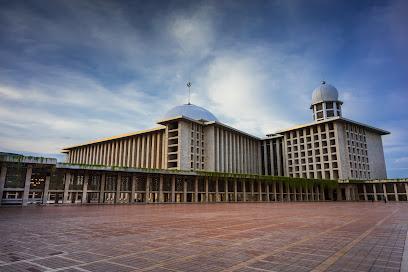
The Church of Our Lady of the Assumption
Explore the stunning Church of Our Lady of the Assumption, a neo-gothic masterpiece in Central Jakarta, rich in history and spiritual beauty.
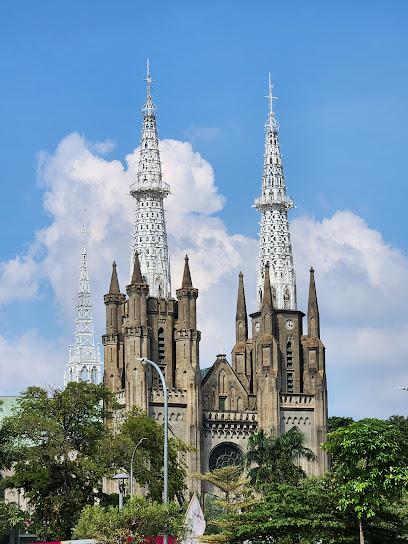
Museum Bank Indonesia
Explore the rich economic history of Indonesia at Museum Bank Indonesia, showcasing fascinating currency artifacts and engaging exhibits.
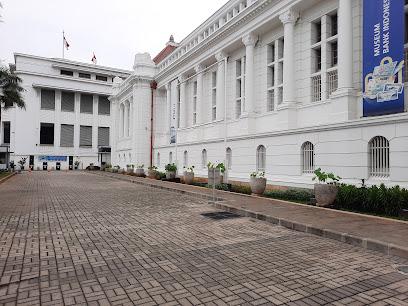
Kidzania Jakarta
Discover a world of fun and learning at Kidzania Jakarta, where children can explore their dreams through immersive role-playing experiences.
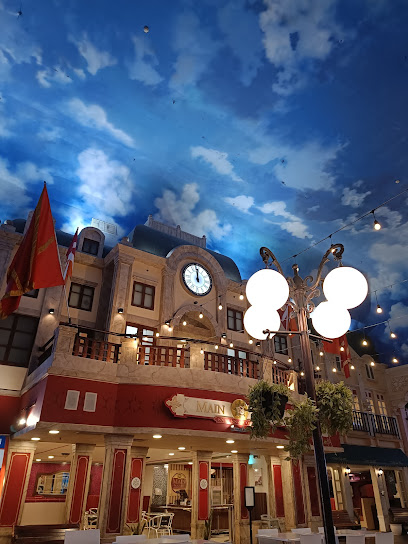
Ayodya Park - Barito
Discover the tranquil beauty of Ayodya Park, a green oasis in South Jakarta perfect for relaxation and enjoying nature.
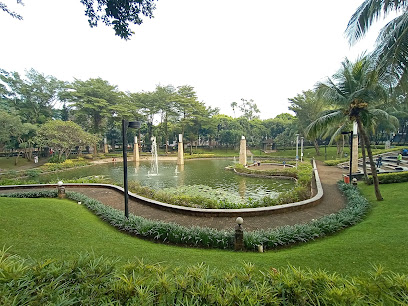
Ocean Dream Samudra - Ancol
Explore the wonders of the ocean at Ocean Dream Samudra, a thrilling theme park in Jakarta's Ancol, perfect for families and adventure seekers.
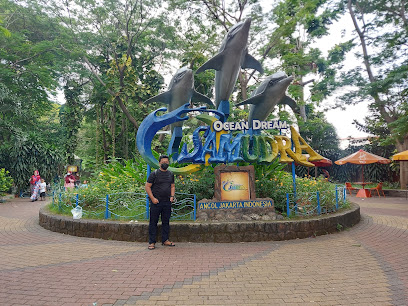
Aloha Pasir Putih
Discover Aloha Pasir Putih, a culinary gem in Tangerang offering stunning beach views and delicious Indonesian cuisine.
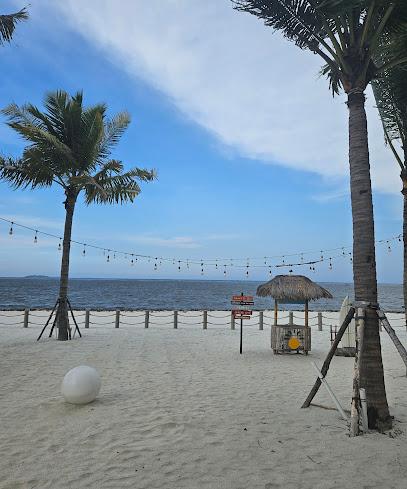
Essential places to dine
Paulaner Bräuhaus
Discover authentic Bavarian flavors at Paulaner Bräuhaus in Jakarta – where traditional German cuisine meets local hospitality.
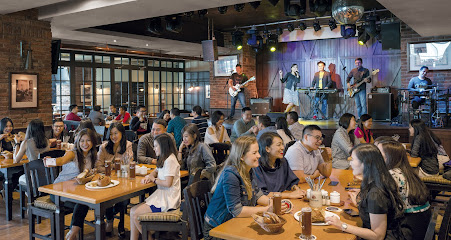
Seribu Rasa Menteng
Discover the rich flavors of Indonesia at Seribu Rasa Menteng - where tradition meets elegance in every bite.
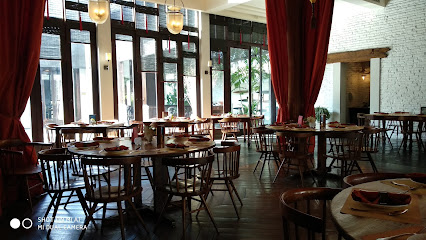
Plataran Menteng
Experience authentic Indonesian cuisine in an elegant setting at Plataran Menteng in Central Jakarta.
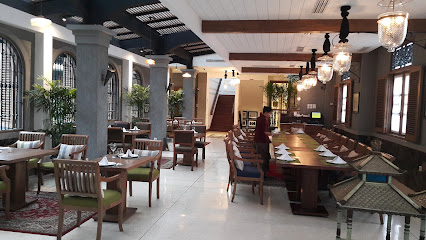
Tugu Kunstkring Paleis
Experience exquisite Indonesian cuisine amidst captivating art at Tugu Kunstkring Paleis in Jakarta.
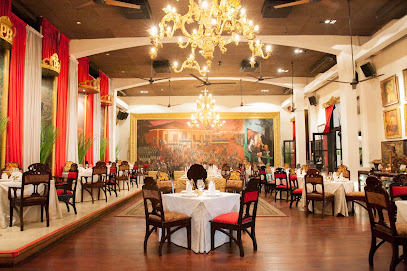
Hutan Kota by Plataran
Discover Hutan Kota by Plataran: Jakarta's serene event venue offering fine dining amidst lush greenery for an unforgettable experience.
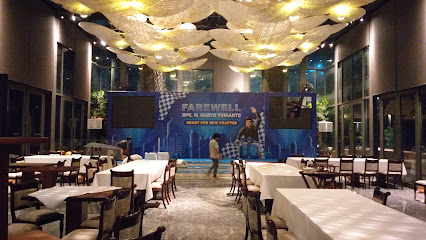
Sana Sini Restaurant
Experience an unforgettable buffet journey at Sana Sini Restaurant in Jakarta with diverse international cuisines in a luxurious setting.
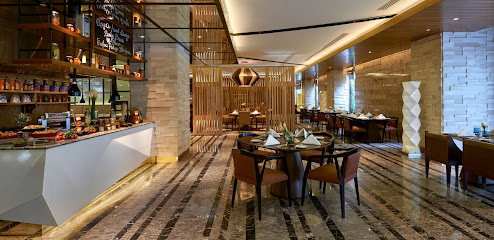
Kaum Jakarta
Discover the heart of Indonesia at Kaum Jakarta – where tradition meets modern dining in a vibrant atmosphere filled with live music.
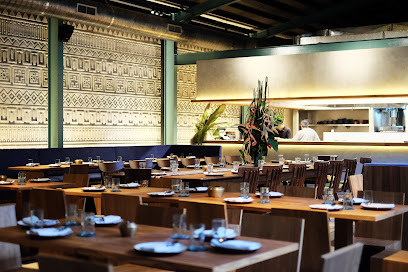
Lara Djonggrang
Experience authentic Indonesian cuisine at Lara Djonggrang in Jakarta - where tradition meets culinary excellence.

Social House
Discover the vibrant flavors and chic ambiance at Social House in Central Jakarta, where every meal is a celebration of taste.
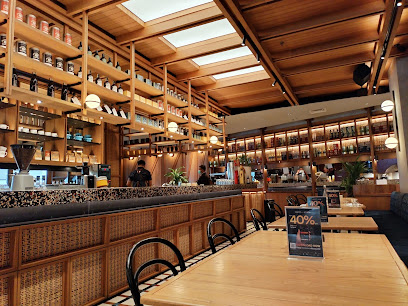
Plataran Dharmawangsa
Experience the essence of Indonesia at Plataran Dharmawangsa - where tradition meets contemporary dining.
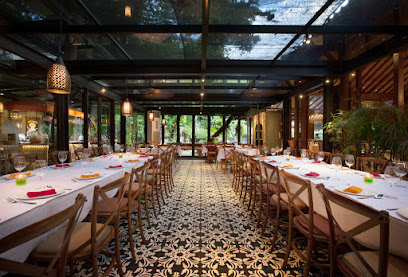
Le Quartier
Discover Le Quartier: A premier destination for authentic French cuisine and fine dining in South Jakarta.
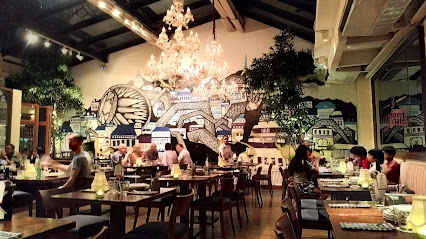
Kembang Goela Restaurant
Experience the rich flavors of Indonesia at Kembang Goela Restaurant in South Jakarta, where traditional dishes meet modern elegance.
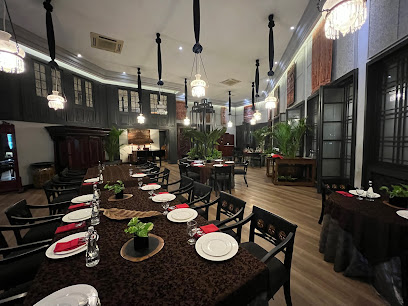
The Acre
Experience authentic Indonesian cuisine at The Acre, Jakarta's first carbon-neutral cafe, where sustainability meets deliciousness.
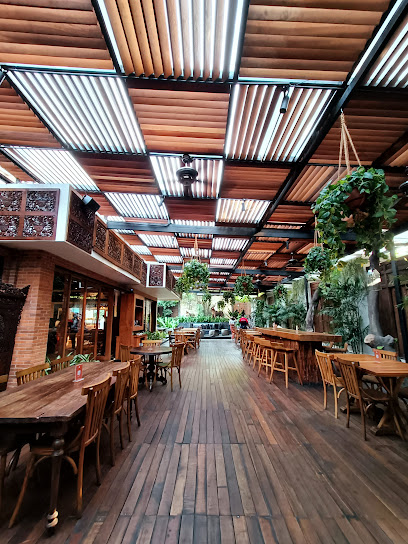
Agneya Restaurant
Experience authentic Indonesian cuisine at Agneya Restaurant in South Jakarta - where tradition meets flavor.
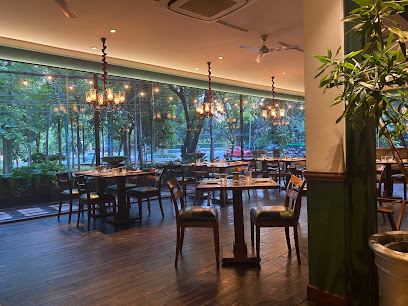
Patio Venue & Dining
Discover culinary excellence at Patio Venue & Dining, where Western flavors meet Indonesian charm in an elegant setting.
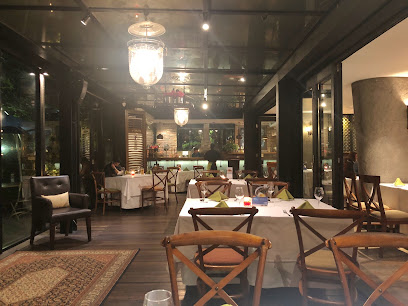
Markets, malls and hidden boutiques
Pondok Indah Mall 1
Discover a dynamic shopping and entertainment experience at Pondok Indah Mall 1 in Jakarta, featuring diverse retail options and delightful dining.
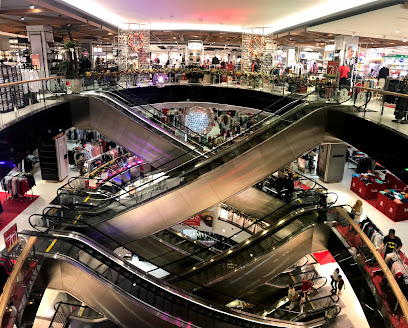
Plaza Indonesia
Discover luxury shopping, exquisite dining, and vibrant entertainment at Plaza Indonesia, the premier shopping mall in Jakarta.
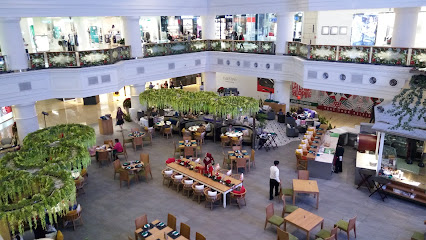
Pacific Place Mall
Experience Jakarta's top shopping destination at Pacific Place Mall, where luxury meets vibrant dining and entertainment options for every traveler.
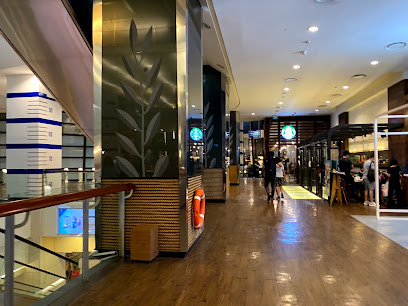
Grand Indonesia East Mall
Discover the ultimate shopping experience at Grand Indonesia East Mall, where modern luxury meets traditional Indonesian culture in the heart of Jakarta.
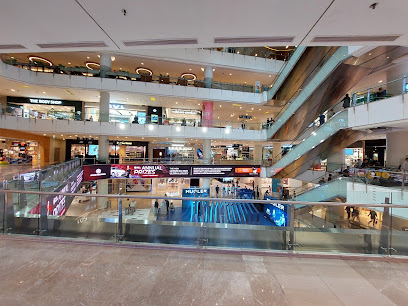
UNIQLO GRAND INDONESIA(SINTA LOBBY)Jakarta Pusat
Experience the latest in fashion and comfort at UNIQLO Grand Indonesia in Central Jakarta, where style meets affordability.
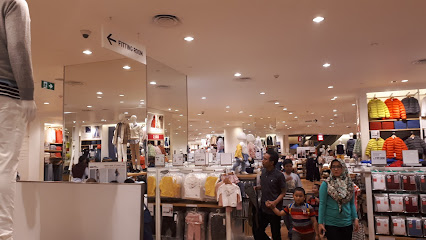
Central Department Store
Explore the vibrant Central Department Store in Jakarta, where shopping meets modern elegance, offering everything from fashion to local crafts.
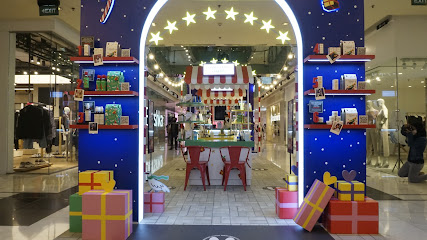
Zara
Discover contemporary fashion at Zara, a prime clothing destination in Central Jakarta with stylish selections for every taste and occasion.
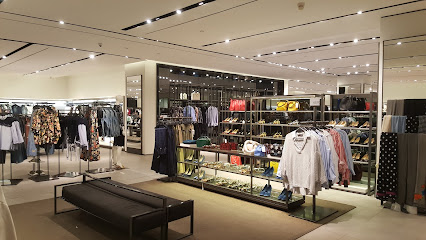
Alun Alun Indonesia
Experience the best of Indonesian culture and shopping at Alun Alun Indonesia, Central Jakarta's premier department store hub.
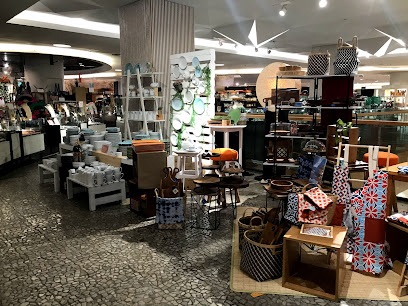
Gucci
Discover the epitome of luxury fashion at Gucci in Jakarta, featuring exquisite clothing, accessories, and timeless designs for all styles.
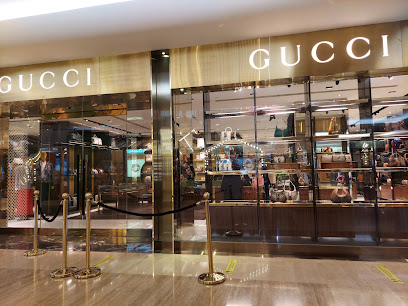
DIOR Jakarta Plaza Indonesia
Explore the epitome of luxury at DIOR Jakarta Plaza Indonesia, where fashion meets elegance in the heart of the city.

Ethnique Boutique
Explore Ethnique Boutique in Jakarta for a diverse selection of stylish clothing, including children's wear, formal outfits, and plus-size options.
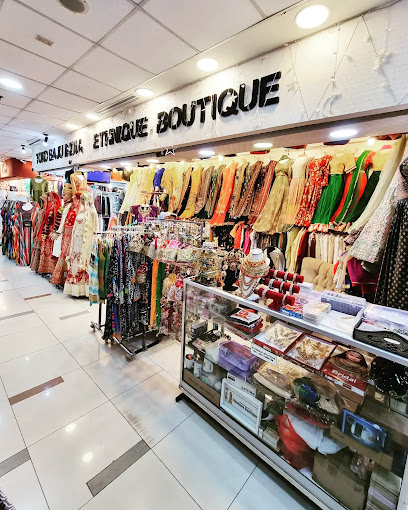
The Body Shop
Explore The Body Shop at Grand Indonesia East Mall for ethical beauty products that delight your senses and care for the planet.
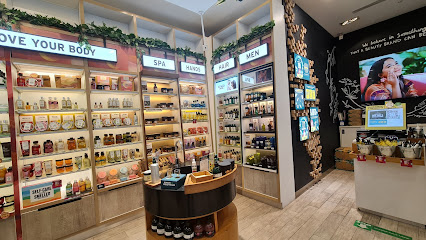
Claude - Plaza Indonesia
Explore contemporary women's fashion at Claude, located in the luxurious Plaza Indonesia, where style meets elegance in Jakarta's shopping haven.

Marks & Spencer
Explore Marks & Spencer in Jakarta for a unique blend of British fashion and quality home goods in the heart of the city.
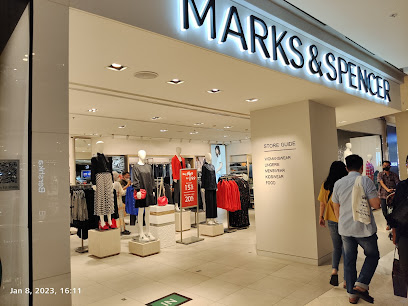
Saint Laurent
Discover luxury at Saint Laurent in Jakarta's Plaza Indonesia, where high-fashion meets exceptional service in a stunning boutique setting.
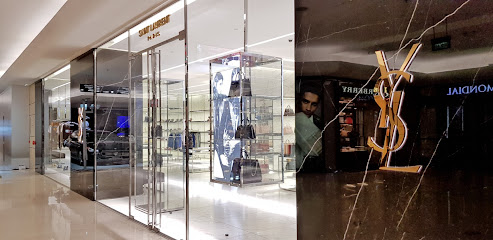
Essential bars & hidden hideouts
Melly's Garden
Experience the vibrant atmosphere at Melly's Garden, a lively pub and cafe in Central Jakarta offering great food, drinks, and live music.
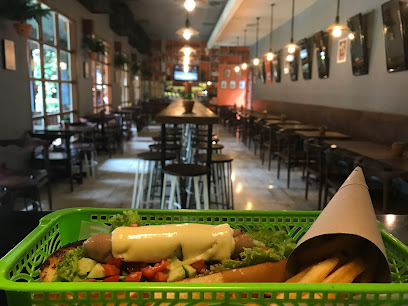
Camden Bar
Discover Camden Bar, a top nightlife destination in Central Jakarta, renowned for its vibrant atmosphere, unique cocktails, and lively events.
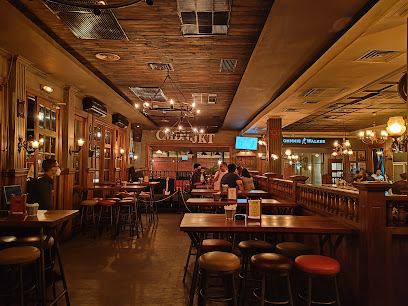
Beer Hall
Discover Jakarta's lively Beer Hall, a perfect fusion of craft beer and live music in the heart of the city.
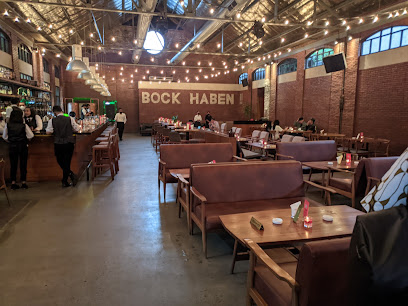
HW Helen's Live Bar Gunawarman
Discover the lively charm of HW Helen's Live Bar Gunawarman, a premier destination for nightlife and culinary delights in South Jakarta.
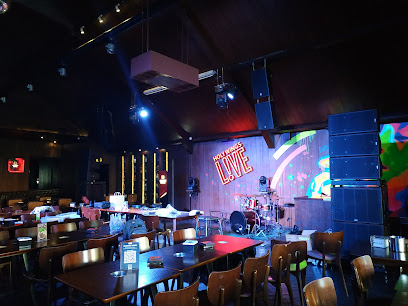
The Jaya Pub
Discover the lively atmosphere of The Jaya Pub in Central Jakarta, a perfect spot for unwinding with drinks and enjoying local nightlife.
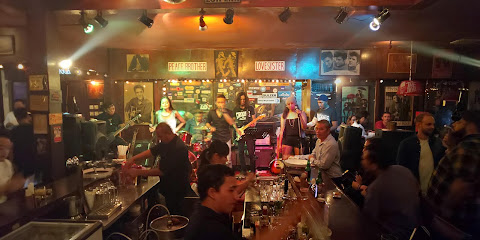
DUCK DOWN BAR
Discover the lively ambiance of Duck Down Bar in Jakarta, where karaoke and cocktails create unforgettable nights out.
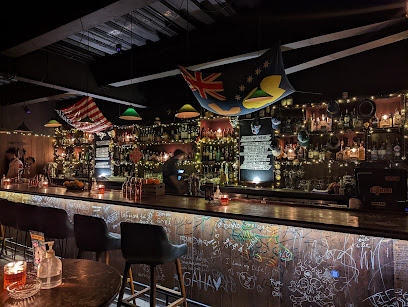
Liquid Exchange
Discover the vibrant nightlife at Liquid Exchange, a premier bar in South Jakarta known for its eclectic drinks and lively atmosphere.
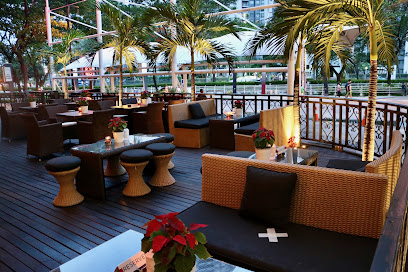
B.A.T.S. Bar and Restaurant
Discover the vibrant flavors and lively atmosphere at B.A.T.S. Bar and Restaurant in Jakarta, a perfect blend of gourmet dining and nightlife.
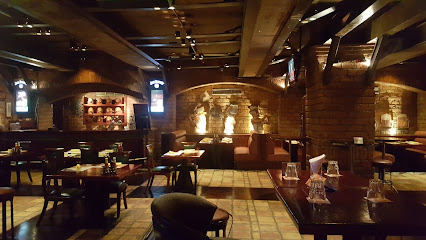
BART Jakarta
Discover Jakarta's nightlife at BART, a lively cocktail bar featuring signature drinks and captivating live music that promises an unforgettable evening.
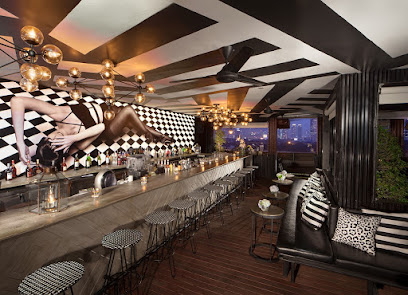
The Cocktail Club
Experience Jakarta's vibrant nightlife at The Cocktail Club, where innovative cocktails meet a chic and cozy atmosphere for the perfect night out.
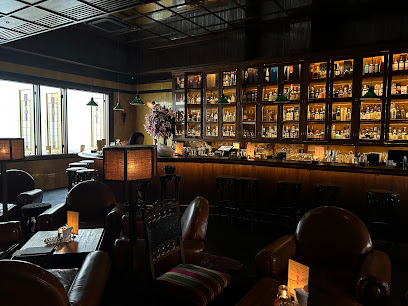
Artoz Bar
Experience the best of Jakarta's nightlife at Artoz Bar, where live jazz meets a luxurious lounge atmosphere.
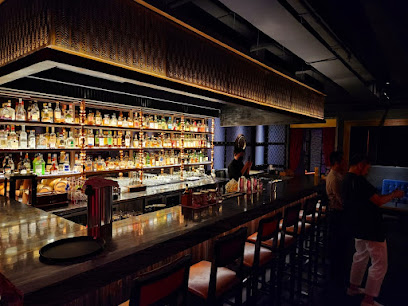
La Vue Rooftop Bar
Indulge in exquisite cocktails and stunning skyline views at La Vue Rooftop Bar, a must-visit in Central Jakarta for a memorable nightlife experience.
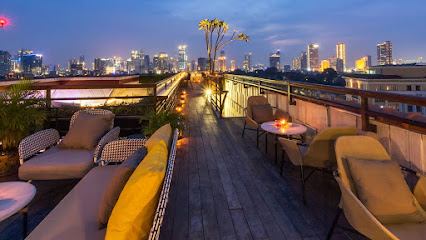
Nautilus Bar
Experience Jakarta's nightlife at Nautilus Bar, a stylish lounge offering exquisite cocktails, delicious bites, and a relaxing ambiance.
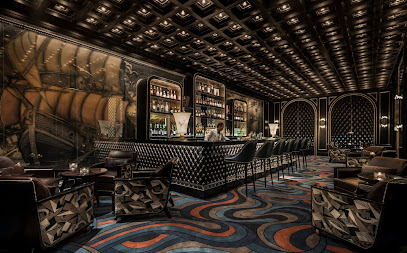
Churchill Wine & Cigar Bar
Experience the epitome of luxury at Churchill Wine & Cigar Bar in Central Jakarta, where fine wines and premium cigars await.
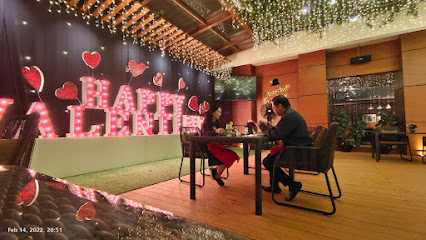
Blu Martini Bar & Lounge
Experience Jakarta's nightlife at Blu Martini Bar & Lounge, where expertly crafted cocktails meet a stylish atmosphere for an unforgettable evening.
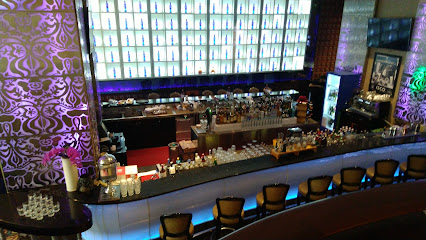
Local Phrases
-
- HelloHalo
[ha-lo] - GoodbyeSelamat tinggal
[se-la-mat ting-gal] - YesYa
[ya] - NoTidak
[ti-dak] - Please/You're welcomeSilakan
[si-la-kan] - Thank youTerima kasih
[te-ri-ma ka-sih] - Excuse me/SorryMaaf
[ma-af] - How are you?Apa kabar?
[a-pa ka-bar] - Fine. And you?Baik. Bagaimana denganmu?
[ba-ik. ba-gai-ma-na den-gan-mu] - Do you speak English?Apakah kamu bisa berbicara bahasa Inggris?
[a-pa-kah kam-mu bi-sa ber-bi-tsa ba-ha-sa ing-gris] - I don't understandSaya tidak mengerti
[sa-ya ti-dak men-ger-ti]
- HelloHalo
-
- I'd like to see the menu, pleaseBisa saya lihat menu, terima kasih
[bi-sa sa-ya li-hat me-nu, te-ri-ma ka-sih] - I don't eat meatSaya tidak makan daging
[sa-ya ti-dak ma-kan da-ging] - Cheers!Selamat minum!
[se-la-mat mi-num] - I would like to pay, pleaseBisa saya bayar, terima kasih
[bi-sa sa-ya ba-yar, te-ri-ma ka-sih]
- I'd like to see the menu, pleaseBisa saya lihat menu, terima kasih
-
- Help!Tolong!
[to-long] - Go away!Pergi!
[per-gi] - Call the Police!Panggil polisi!
[pang-gil po-li-si] - Call a doctor!Panggil dokter!
[pang-gil dok-ter] - I'm lostSaya tersesat
[sa-ya ter-se-sat] - I'm illSaya sakit
[sa-ya sa-kit]
- Help!Tolong!
-
- I'd like to buy...Saya ingin membeli...
[sa-ya in-gin mem-be-li] - I'm just lookingSaya hanya melihat-lihat
[sa-ya han-ya me-li-hat-li-hat] - How much is it?Berapa harganya?
[be-ra-pa har-ga-nya] - That's too expensiveItu terlalu mahal
[i-tu ter-la-lu ma-hal] - Can you lower the price?Bisa kurangi harganya?
[bi-sa ku-ran-gi har-ga-nya]
- I'd like to buy...Saya ingin membeli...
-
- What time is it?Sekarang jam berapa?
[se-ka-rang jam be-ra-pa] - It's one o'clockSekarang pukul satu
[se-ka-rang pu-kul sa-tu] - Half past (10)Setengah (sepuluh)
[se-ten-gah (se-pu-luh)] - MorningPagi
[pa-gi] - AfternoonSore
[so-re] - EveningMalam
[ma-lam] - YesterdayKemarin
[ke-ma-rin] - TodayHari ini
[ha-ri i-ni] - TomorrowBesok
[be-sok] - 1Satu
[sa-tu] - 2Dua
[du-a] - 3Tiga
[ti-ga] - 4Empat
[em-pat] - 5Lima
[li-ma] - 6Enam
[e-nam] - 7Tujuh
[tu-juh] - 8Delapan
[de-la-pan] - 9Sembilan
[sem-bi-lan] - 10Sepuluh
[se-pu-luh]
- What time is it?Sekarang jam berapa?
-
- Where's a/the...?Dimana ada/ada...
[di-ma-na a-da/a-da] - What's the address?Apa alamatnya?
[a-pa a-la-mat-nya] - Can you show me (on the map)?Bisa tunjukkan saya (di peta)?
[bi-sa tun-juk-kan sa-ya (di pe-ta)] - When's the next (bus)?Kapan yang berikutnya (bus)?
[ka-pan yang be-ri-kut-nya (bus)] - A ticket (to ....)Tiket (ke....)
[ti-ket (ke)]
- Where's a/the...?Dimana ada/ada...
History of Jakarta
-
Jakarta, originally known as Sunda Kelapa, was a thriving port city under the Sunda Kingdom in the 4th century. Its strategic location on the northwest coast of Java made it a crucial hub for trade with regions as far as China and India. Artifacts from this period reveal a rich cultural tapestry influenced by Hinduism and Buddhism.
-
In the early 16th century, Portuguese traders arrived in Sunda Kelapa, seeking to establish a foothold in the spice trade. They forged an alliance with the Sunda Kingdom, constructing a fortress to bolster their influence. However, this alliance was short-lived, as local forces and competing interests soon challenged their presence.
-
The fall of Sunda Kelapa came in 1527 when Fatahillah, a commander from the Sultanate of Demak, drove out the Portuguese and renamed the city Jayakarta, meaning 'Complete Victory.' This marked the beginning of a new era, with Jayakarta emerging as a significant Islamic trading center.
-
In 1619, the Dutch East India Company (VOC) captured Jayakarta and renamed it Batavia. The Dutch transformed the city into the administrative and commercial hub of the Dutch East Indies. The colonial architecture, canals, and fortifications from this period still bear witness to Batavia's historical significance.
-
During World War II, Japanese forces occupied Jakarta from 1942 to 1945, renaming it Jakarta to align with nationalist sentiments. The occupation was a period of hardship and transformation, as the Japanese promoted Indonesian nationalism and mobilized local support against the Dutch colonial rule.
-
On August 17, 1945, Indonesia declared its independence from Dutch colonial rule. Jakarta played a pivotal role in the independence movement, becoming the capital of the newly proclaimed Republic of Indonesia. The city's landscape and society rapidly evolved as it embraced its new identity and responsibilities.
-
Today, Jakarta is a bustling metropolis and Indonesia's political, economic, and cultural heart. The city's skyline is a blend of modern skyscrapers and historic buildings, reflecting its dynamic growth and rich heritage. Jakarta continues to be a melting pot of cultures, offering a vibrant mix of traditions, cuisines, and lifestyles.
Jakarta Essentials
-
Jakarta is served by Soekarno-Hatta International Airport (CGK), located approximately 20 kilometers west of the city center. The airport is well-connected with numerous international and domestic flights. From the airport, you can take a taxi, an airport shuttle bus, or the Airport Rail Link to reach different parts of the city. Additionally, Halim Perdanakusuma Airport (HLP) caters to some domestic flights and is located closer to the city center.
-
Jakarta offers various modes of transportation, including taxis, ride-hailing services (such as Gojek and Grab), buses (TransJakarta), commuter trains (KRL), and the MRT and LRT systems. While taxis are convenient, traffic congestion can be an issue. The TransJakarta bus network is extensive and affordable. Ride-hailing services are reliable and popular among locals and tourists alike. For a more scenic experience, you can also use traditional becaks (pedicabs) in certain areas.
-
The official currency in Indonesia is the Indonesian Rupiah (IDR). Credit and debit cards are widely accepted in hotels, restaurants, and shopping centers, but it is advisable to carry some cash for smaller establishments and street vendors. ATMs are plentiful throughout the city. Currency exchange services are available at the airport, banks, and licensed money changers.
-
Jakarta is generally safe for tourists, but it is essential to stay vigilant. Areas with higher crime rates targeting tourists include North Jakarta, particularly around the Ancol area, and some parts of Central Jakarta. Avoid displaying valuables and be cautious in crowded places to prevent pickpocketing. It is advisable to use reputable transportation services and avoid walking alone at night in unfamiliar areas.
-
In case of emergency, dial 112 for immediate assistance. Major hospitals such as Rumah Sakit Cipto Mangunkusumo (RSCM) provide comprehensive medical services. It is recommended to have travel insurance that covers medical emergencies. For minor health issues, pharmacies are widely available. The local police can be reached by dialing 110. Keep the contact details of your country’s embassy or consulate handy.
-
Fashion: Do dress modestly, especially when visiting religious sites. Avoid wearing revealing clothing. Religion: Do respect local customs and practices. Remove your shoes before entering mosques and temples. Public Transport: Do be patient during rush hours. Don't eat or drink on public transport. Greetings: Do greet people with a smile and a slight bow or handshake. Eating & Drinking: Do try local delicacies and street food. Don't use your left hand for eating or handling food, as it is considered impolite.
-
To experience Jakarta like a local, visit traditional markets such as Pasar Baru and Tanah Abang for a taste of local life. Spend an evening at a warung (small eatery) to enjoy authentic Indonesian cuisine. Explore the historic Kota Tua area to see colonial architecture and learn about Jakarta’s history. Consider using a motorbike taxi (ojek) for a quick and efficient way to navigate the city’s traffic. Engage with locals, who are often friendly and willing to share insights about the city.
Trending Landmark in Jakarta
-
Taman Mini Indonesia Indah
-
National Monument
-
Taman Impian Jaya Ancol
-
Taman Fatahillah
-
Lapangan Banteng Park
-
Jakarta History Museum
-
Wisata Kota Tua Jakarta
-
National Museum of Indonesia
-
Istiqlal Mosque
-
Selamat Datang Monument
-
Tugu Proklamasi
-
Monumen Patung Dirgantara
-
Monumen Pancasila Sakti
-
Toko Merah
-
Gedung Kesenian Jakarta
Nearby Cities to Jakarta
-
Things To Do in Bandung
-
Things To Do in Semarang
-
Things To Do in Yogyakarta
-
Things To Do in Poon Saan
-
Things To Do in Flying Fish Cove
-
Things To Do in Drumsite
-
Things To Do in Settlement
-
Things To Do in Greta Beach
-
Things To Do in Surabaya
-
Things To Do in Sentosa
-
Things To Do in East Coast Park
-
Things To Do in Marina Bay
-
Things To Do in Chinatown
-
Things To Do in Clarke Quay
-
Things To Do in Bugis


















